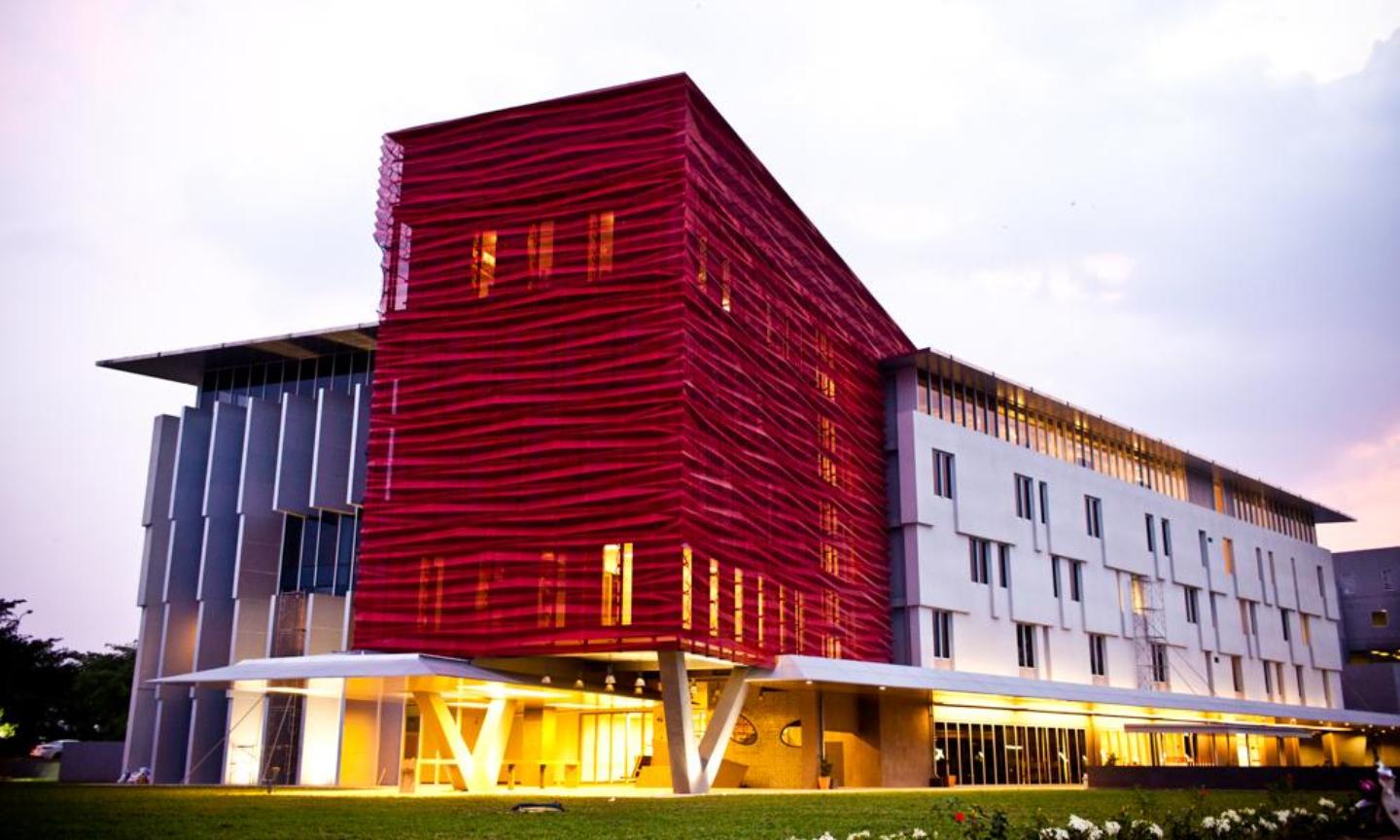RMIT Vietnam was established in 2000 and has grown into a leading university in the region, with two well-equipped campuses in Ho Chi Minh City and Hanoi.
The programs and courses we offer are identical to those offered at RMIT University, Melbourne. RMIT Vietnam students are awarded an RMIT Melbourne degree on satisfactory completion of their program of studies.
Our campuses and international partners around the world are subject to the same stringent quality checks and standards, so you can be sure that wherever in the world you study an RMIT program you’ll be receiving the highest quality education.
We have over 7,000 students enrolled at our two Vietnam campuses, with numbers steadily increasing.
Saigon South campus
The Saigon South campus is based in Ho Chi Minh City and is the larger of our two campuses, with around 6,000 students enrolled. It runs a broad range of programs in areas including IT, business, fashion merchandising and economics.
Hanoi campus
The Hanoi campus has about 1,400 students and its program offerings include English, IT, commerce, accountancy and professional communication.
 RMIT Vietnam’s Saigon South campus is a purpose-built, contemporary educational facility of an international standard.
RMIT Vietnam’s Saigon South campus is a purpose-built, contemporary educational facility of an international standard.
RMIT Vietnam background
RMIT’s association with Vietnam began in 1992, growing in strength through education, business and research links in engineering, information technology, communication, finance and telecommunications.
RMIT’s association with Vietnam began in 1992, growing in strength through education, business and research links in engineering, information technology, communication, finance and telecommunications.
In 1998, Vietnamese authorities invited RMIT to establish a fully foreign-owned university in Vietnam, granting a licence in 2000 for the delivery of undergraduate and postgraduate education, training and research.The University began offering programs in 2001 in Ho Chi Minh City and in 2004 in Hanoi.
All RMIT degrees are recognised by the Vietnamese Ministry of Education and Training.This means that, for the first time, Vietnamese students can receive an international education without having to leave home.
Since 2003, RMIT Vietnam has won the prestigious Golden Dragon Award six times, for excellence in education services. It has also received awards from the Australian Chamber of Commerce for innovation and community service and Certificates of Merit from the Ho Chi Minh City People’s Committee and the Ministry of Planning and Investment in Hanoi.
In 2008, the Prime Minister of Vietnam, Nguyen Tan Dung, visited Melbourne and presented a Certificate of Merit to RMIT Vice-Chancellor and President, Professor Margaret Gardner AO, in recognition of RMIT Vietnam’s contribution to the social and economic development of Vietnam.
RMIT is a “twin hub” university. Students in some programs may choose to spend time studying in both countries, and a growing number of Australian-based students are undertaking projects in Vietnam. All Australian-based academic staff undertaking a Graduate Certificate in Tertiary Teaching and Learning study a component at RMIT Vietnam. Research initiatives have taken place in the fields of information technology, food technology and safety, the control of infectious diseases and water.